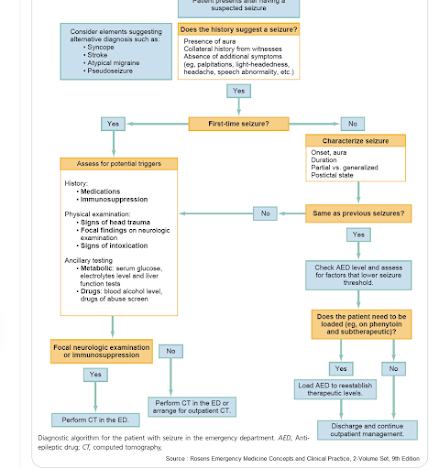Kwei--Wed
For two years, data scientist Francis Haugen, 37, was a project manager for Facebook until she left in May 2019. On October 3, 2021, she appeared on CBS's 60 Minutes as a whistleblower revealing the dark, murky dealings of Facebook and the social networking service it owns, Instagram. At issue are the algorithms that these entities use to engage its users for as long as possible, leading to distress and suicidal or near-suicidal acts.
An algorithm is a process or set of rules to be followed in calculations or other problem-solving operations and ending with a solution or goal. Algorithms are used in industry and medicine as a tool to know what needs to be done next. In medical training, we often studied eye-glazing, sleep-inducing diagnostic algorithms like the one shown below. Paradoxically, the more skilled a physician you were, the less you needed to rely on algorithms on paper because you knew it in your soul.
So then, what are algorithms on Facebook and Instagram? I question whether algorithm is not a euphemistically neutral word that conceals what is actually happening. When I read about FB/IG algorithms, I see quotes like,
The new [2021] Instagram algorithm dictates the order of the posts that users see when they’re scrolling through their feed.
Based on specific signals, it prioritizes the best posts, pushing the most relevant ones toward the top and giving them the most visibility, while other content ends up being placed further down.
To me, this isn't quite an algorithm, which gives options for different outcomes. This is a decree on what the outcome must always be: give the [best posts] the most visibility. An algorithm starts at the beginning and moves forward through various options to arrive at several possible outcomes. An Instagram algorithm starts at the end with a fixed outcome, keep as many eyes on the screen for the longest time.
According to Frances Haugen, FB/IG harms teenagers, the company knows it, but they've done nothing about it because all this is good for the bottom line. In addition, Facebook was aware that misinformation, hate speech, and divisive political speech on their apps were affecting societies around the world. This could include in 2018 when the Myanmar military used Facebook to launch a coup. Facebook knows that fear and anger are the most effective means of promoting engagement.
Instagram, the more visual of the two platforms, has devastated teens all over the world. Instagram's own research finds thirteen percent of teen girls say Instagram makes thoughts of suicide worse, and seventeen percent stated that Instagram made eating disorders worse. FB/IG has been compared to the tactics of tobacco companies decades ago: They knew tobacco was bad, but they hid the evidence because it would reduce the bottom line.
Adults, too, using FB/IG may be aware of the way they are being manipulated. If you show interest, even casually, in a particular item, you will soon be targeted with ads of that product or variations of it.
There's something smug, smarmy, and arrogant about Facebook, not least because Mark Zuckerberg, the CEO, appears smug, smarmy and arrogant. This ick factor is much of the reason I'm considering boycotting Facebook and Instagram. I feel like I'm in bed with a slimy monster. I don't boycott companies only on the basis of self-interest; I boycott on principle whether it directly affects me or not.
If I withdraw, what might I lose? I do use these platforms to let people know what's new and what books are coming out, but newsletters do that too, and my closest Instagram followers (those who engage the most) are probably also on my email list.
And lastly, what is the true value of Instagram followers for an author? For me, certainly not financial. There is no discernible correlation between number of followers and book sales. Is it something about being seen and remaining relevant and connected? Or ego?--there's a lot of tooting one's own horn on IG.

















Interesting points! I guess an algorithm is a procedure that has an objective. The question here is what that objective is...
ReplyDeleteAs for the value of FB to authors, all I can say is that I once asked someone senior in the publication industry if they knew what worked in marketing. He responded that they knew that half of what they do is valueless, but they didn't know which half!
Living as an expat in rural Greece, I know a completely different side to FB as it serves as our community bulletin board, newspaper and television. Updates on weather and emergencies are found on it. Alerts for delayed flights and tips or travel deals and recommendations also fill my feed. It is also a link to those 'back home' - a place to keep up with those who never find the time to write but who post updates regularly. It is also a source of entertainment, such as reading MIE, and other such pages. While I guess we are in an age of questioning everything and finding the dark, the negative and the needs-to-be-changed in all aspects of life, I do want to offer that there are two sides to all things (former journalist hat on here) and that perhaps both sides should be given some consideration.
ReplyDeleteThanks, Kwei, for making algorithms simple to understand--though far from that to create.
ReplyDelete